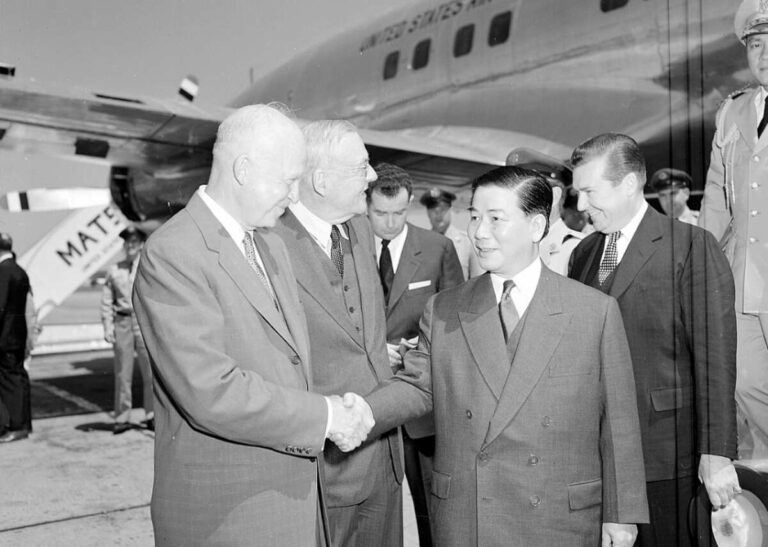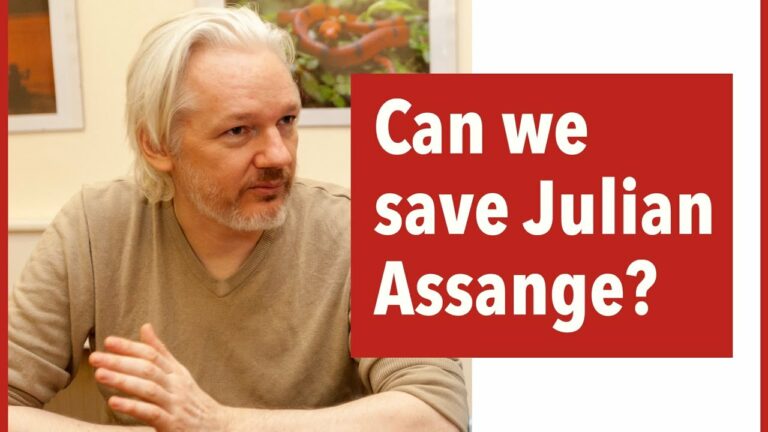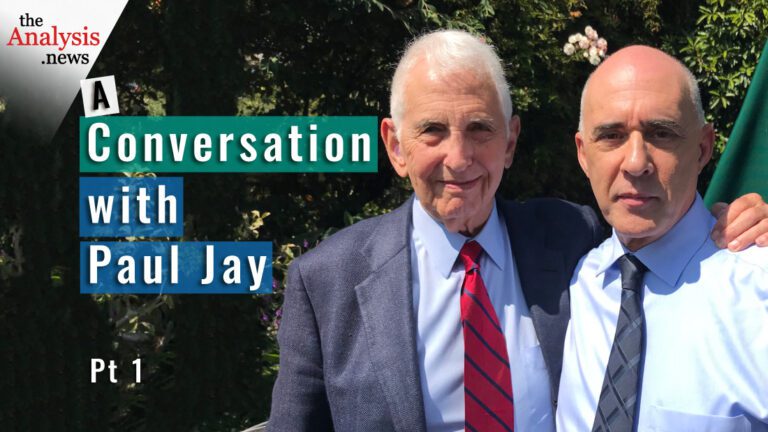This interview was originally published on January 11, 2014. On Reality Asserts Itself with Paul Jay, Chris Hedges and William Binney answer the question: “What should the NSA policy look like?”
PAUL JAY, SENIOR EDITOR, TRNN: Welcome back to The Real News Network. I’m Paul Jay in Baltimore. And this is Reality Asserts Itself.
In a few days, President Obama’s going to announce his new policies regarding NSA telephone and data gathering. And in part one of this series of interviews, we talked about the nature of the problem, what’s been going on with NSA gathering, which is essentially, in many people’s opinion, unconstitutional, illegal, which means some people have committed criminal acts, which they are not–and it looks like they will not they will not, at least not by this administration, be held accountable, because, as it was pointed out in part one, it’s–the leading members of this administration are up to their eyeballs in it.
Well, without much hope President Obama is going to either watch this interview–and if he is, follow any of the advice–we’re going to give it to him anyway.
Now joining us are two gentlemen who’ve been in the middle of this debate. First of all, Chris Hedges is a Pulitzer Prize-winning journalist, a senior fellow at the Nation Institute, and author of many best-selling books, including Days of Distraction, Days of Revolt. And he writes regularly for Truthdig.
And William Binney, who is the former technical director of the World Geopolitical and Military Analysis Reporting Group and a senior NSA cryptomathematician at the NSA. (I love saying those words. I don’t know why.) He worked there for over three decades, until he retired after 9/11 as the agency began to implement domestic spying programs that he says are unconstitutional. He was also a whistleblower in 2002. And he continues to be an outspoken critic of the NSA.
So President Obama, lo and behold, phoned you last night (of course, he didn’t, but let’s do our imaginary thing), and he said, okay, Bill, tell me what I should be saying. How do I balance constitutional rights, national security interest, and protecting our people and so on? What would you advise?
WILLIAM E. BINNEY, FORMER NSA TECHNICAL DIRECTOR: Well, first of all, we have prepared advice for him and sent that down to the White House.
JAY: Who’s we?
BINNEY: The collective group of four whistleblowers from NSA–Kirk Wiebe, and Ed Loomis, Tom Drake, and myself–also Diane Roark, a former House Intelligence Committee staffer, who managed the NSA account, we all chipped in and put in some advice to the president as to some of the things he should be doing, as opposed to the 46 points that were prepared for him by the other–.
JAY: And what are the highlights of what you recommended?
BINNEY: There were two main issues. One was to do–one was to show or to do a focused collection of information on targets that were really important for international crime or other types of terrorism and things like that. Those kinds of focused target collection are possible, and we in fact had achieved that in a previous program that was killed, but that’s the kind of thing they need to really get rid of all of this bulk collection, because all that does is add more data that’s not relevant to anything.
JAY: And how do you parse what’s to be focused on? How would you know?
BINNEY: Actually, it’s really pretty simple. If you know a terrorist or a dope smuggler, then that’s a known bad guy. And if you look at who he communicates with, either in email or phone, that’s, like, one degree of separation from a known bad guy. Then the next degree out is the second degree, that–who that guy communicates with.
JAY: But what about a situation that took place in England, like the 7/7, when the buses blew up. As far as I can make out, those guys didn’t know anybody, and that that–you know, tracing it back from them wouldn’t have found them, because I don’t think they ever found any connection between the 7/7 guys and any kind of organized network.
BINNEY: Well, see, the other rules that you input other than just the relationships [incompr.] zones of separation is that–look for people who are visiting websites that advocate violence or jihad against the West. And if you see those kinds of [crosstalk]
JAY: And I think in this situation, you would have found that.
BINNEY: Yes. Yeah. Those are the other rules. Other things, other kinds of things, very simply put, are if you have a satellite phone that’s coming out of the middle of Afghanistan in the mountains or in the middle of the jungles in Columbia, chances are those are terrorists or drug smugglers.
JAY: It’s probably not vacationers. Yeah.
CHRIS HEDGES, SENIOR FELLOW, THE NATION INSTITUTE: Or a foreign correspondent.
BINNEY: Or a foreign correspondent.
JAY: It could be a foreign correspondent.
BINNEY: But you see, okay, the rules go like this, that if you find a foreign correspondent, then you can identify them once you target them and look at them. Then you sort them out. So you do that on a finite number. Now you’re not collecting the 7 billion people in the world; you’re only down to maybe a few hundred thousand.
JAY: Okay. You had designed–you are–what was it?–a cryptomathematician. I love that. I’m going to keep saying that. So when you were in NSA, you actually designed a program to do exactly what you’re saying, and they said no, and you quit. But they must have given you some arguments why they said no. What were their arguments against what you were doing?
BINNEY: They gave me no argument at all, except they just simply rejected the approach. It was just flat-out rejection.
I guess the argument went like this. They had almost 500 contractors working on this other program.
JAY: This–is that Trailblazer?
BINNEY: Yeah, that was Trailblazer. And they had six people, six contractors working on mine. So they said, what do I do? Make six people unhappy or 500? So it’s happiness management. And that was the way they made the decision.
JAY: But this also–does this not filter up to a more senior level with some kind of strategy about all this?
BINNEY: This was from the senior level. This was from the senior level.
JAY: But the most senior level.
BINNEY: Exactly. And it came down to an issue of this program solicited billions into the budget; this program didn’t.
JAY: And at the political leadership, you said in part one, in terms of Cheney and Bush’s motivation, they don’t mind Hoover on steroids.
BINNEY: No, they don’t. They–in fact, the more information you have, the more power you accumulate to the executive office. And that’s what they [incompr.]
JAY: Okay. So recommendation one: it is possible to actually isolate and target real targets and not go after everybody.
BINNEY: And that means that you eliminate the collection of information about the other 7 billion people on the planet, which means you give them privacy. [crosstalk]
JAY: And according to you, it’s actually even more effective in terms of finding stuff.
BINNEY: Yes. Right.
JAY: Okay. What’s recommendation two?
BINNEY: Recommendation two, let’s see, was have a program or put in place a program that would check on everything that NSA was doing internally, or the FBI or anybody else in the intelligence community, be able to have technical people who were cleared, have all the clearances, and could go into all these agencies, get on their networks, look at every database and every system they had, and answer and make sure that anything they were giving answers to to Congress was correct, that the data was there and that it was right, and also be able to monitor what they were doing, so that you didn’t–you cannot trust what they tell you. And that’s been–I mean, they have a fairly clear track record of not telling the truth. So you have to have a mechanism to validate what they’re saying. In other words, trust but verify. This is the verification process. They have no verification process now. Even Reggie Walton, the chief judge on the FISA court, said, I have a limited capacity to even challenge what NSA or the FBI are telling me. And he does it. He has no way to test–to validate it. He doesn’t have any mechanism to verify what NSA says. And this would be a way for them to do that.
JAY: Okay. Chris?
HEDGES: Well, those who have committed crimes, which would include Clapper lying to Congress and the American public, the president, they have to be held accountable. There have to be repercussions for the gross violation of constitutional rights that have been carried out by those in charge of our security and surveillance apparatus and those political figures who have lied on their behalf. And if there are no repercussions, if we cannot reestablish the rule of law, then there will be no control.
JAY: Okay. Well, that ain’t happening, in the sense that President Obama is not going to indict himself.
HEDGES: It’s not going to happen. They’re not going to make it happen.
JAY: So in terms of what people should be demanding, that would be point one. But what else–let’s say the rule of law is reestablished. What does a balance look like, in terms of intelligence gathering and constitutional rights?
HEDGES: Well, those who are not suspected of engaging in criminal activity should have a right to privacy. And, you know, there has to be, as Bill said, some kind of oversight, because the definition within the security and surveillance apparatus of who they have the right to monitor has basically exploded into everyone. And I think I go back to the point I made in the first segment, that we can’t trust the current structure to reform itself, that the balance of powers is broken, that essentially the courts, elected officials, the judicial–the executive branch, along with the press, has really deeply failed us. And we have to begin to organize, to express on a kind of popular level our mass revulsion for this evisceration of privacy, for the wholesale monitoring of our lives, because if we don’t do it now, once the state feels that it needs to implement these policies of control, any kind of dissent will be impossible–and let’s be clear: not just dissent, but journalism.
I mean, one of the things that terrifies me about the revelations that were made by Snowden is that it shows that investigative reporting into the internal workings of power is impossible, because they can immediately find out who has contacted the reporter and how. And, you know, ‑I have friends who still do investigative journalism. And I was an investigative reporter at The New York Times myself, and they’ll tell you that within especially the security apparatus, they won’t even speak to reporters on background anymore, because they’re terrified of being caught up and prosecuted under the Espionage Act.
JAY: And one of the points Chris makes about checks and balances, in theory, Congress is supposed to have oversight. Bernie Sanders apparently recently asked the NSA whether or not Congress is being listened to and couldn’t get an answer. But is there any actual effective oversight at all coming out of Congress? And, I guess, what would you do to see that there was?
BINNEY: Well, you see, actually, the oversight, the so-called oversight–it’s been a joke for decades. I mean, they have–all they do is go out to NSA and get a briefing on what they’re doing. And that basically means, I trust what NSA tells me. And they get the same thing from the FBI.
I mean, in August 2002, The New York Times broke a story where the FISA court had discovered or found out, one way or the other, that in at least 75 cases, the FBI had misled the court to get warrants. Well, that tells you that they have no–they’ve had–and this is a longstanding problem–they’ve never had the ability to verify anything they’re being told by FBI or NSA or CIA or anybody else.
So that’s why we put in that strong suggestion of having an outside technical group be responsible directly to all of Congress and all of the courts to be able to go into the databases of all the intelligence communities and verify that what the communities are asserting, either in court or to Congress, is correct. I mean, they need some way of verifying the truth here, and they don’t have that now.
JAY: Now, this is all more or less justified by 9/11. But the roots of all this go way back before 9/11 into the Cold War, and this national security state, national surveillance state, it was all directed at domestic opposition, I mean, it was, you know, [incompr.] supposedly worried about, you know, Soviet infiltration and all that. But I can’t believe they ever took all that seriously. You talk to people like Ray McGovern, who was in the analysis section of the CIA, and he says they were telling various presidents that not only was there no real Soviet threat on the soil of the United States; there wasn’t really a Soviet threat in terms of expansionism. And the idea that you needed this infrastructure and spying all throughout the United States to protect national security, it was really directed at legitimate, mostly, if not entirely, legal dissent. And if that’s still going on, doesn’t there need to be a clear principle that this cannot be spied on, you know, the constitutional right to dissent cannot be spied on?
BINNEY: Well, I mean, that’s already written in the Constitution. We have the right to free association, to freedom of speech. You know. That’s all there. We have freedom in our affairs. That’s all written into the Fourth Amendment and the First Amendment. Also, as we had talked earlier in the earlier segment about the law enforcement using [incompr.] it’s a violation of the Fifth Amendment, the right to not testify against yourself. Well, when they’re using the emails that you send or anything that you’re doing that’s acquired through NSA, a non-warrant acquisition of data, that’s using that information against yourself. So it’s a violation of the Fifth Amendment.
But I would also argue–and this is one of the reasons I objected so quickly against what they were doing. I had been working the Soviet problem, the KGB, the MVD, and all the totalitarian state problems for almost 30 years. And it was very clear to me that the procedures they were setting in place after 9/11 from the Bush-Cheney administration, it was clear to me that they were setting in place all of these totalitarian procedures because that’s exactly what the KGB wanted to do. And that’s why I’ve said before that the KGB, the Stasi, the Gestapo, none of them could have dreamt of anything like this. But they would have thought–like, former lieutenant colonel in the East German Stasi Wolfgang Schmidt said, when he was commenting about the NSA collection, then the warrantless surveillance of all the citizens of the United States, he said, for us we could have only dreamt of this. So this would be a dream come true is what he said.
HEDGES: And let’s be clear. I mean, Hannah Arendt, again, to go back to Origins of Totalitarianism, describes a totalitarian state as one by which the handful of dissidents, whistleblowers, people who stand up are silenced through coercion, and maybe even murder, and the rest of the population, the majority of the population is incapacitated through the evisceration of privacy and fear. And that is precisely the system that we have now built.
And we are seeing, whether it’s in the war on drugs, whether it is the persecution of whistleblowers and, you know, the FBI burst into Bill’s bathroom in the morning and seized all of his computers, we are seeing that kind of persecution of Occupy activists, we are seeing a persecution against figures like Chelsea Manning, Julian Assange, or, of course, Snowden, and not only that but Glenn Greenwald and Laura Poitras, who have in essence moved into exile, who will not come in. Sarah Harrison, the journalist who works with WikiLeaks and took Snowden to Russia is now in exile in Berlin.
So we are already seeing the rise of this corporate totalitarianism, for lack of a better word. And as Bill says, the structure has already been built. And those who are in power, Democrat, Republican, federal judge, you know, MSNBC commentator, they’re not going to dismantle it. They’re not going to take it down. Either we as a people are going to rise up and force power to react, or we will be shackled. I mean, that is really the choice.
And with the growing effects of climate change, with the collapse of globalization, with the deterioration of the economy, and certainly within the United States, they know–and I’m speaking–you know, the Department of Homeland Security, not necessarily the NSA, but the people who run those scenarios, the Pentagon, they–this is what they do. They project five years, ten years. And these tools, because they are available to them, will be used.
JAY: Alright. Thanks for joining us.
Thank you very much.
And thank you for joining us on Reality Asserts Itself on The Real News Network.
Never miss another story
Subscribe to theAnalysis.news – Newsletter
“Christopher Lynn Hedges is an American journalist, Presbyterian minister, author, and commentator. In his early career, Hedges worked as a freelance war correspondent in Central America for The Christian Science Monitor, NPR, and Dallas Morning News.”
“William Edward Binney is a former intelligence official with the United States National Security Agency and whistleblower. He retired on October 31, 2001, after more than 30 years with the agency.”








